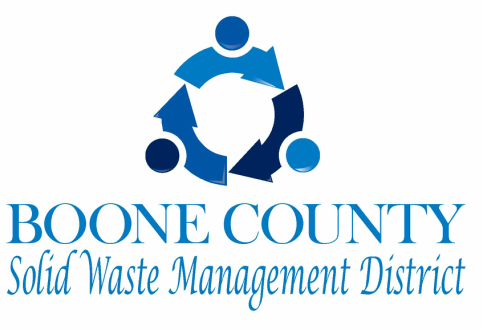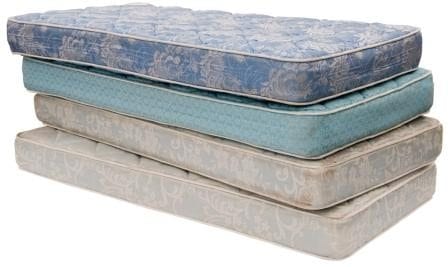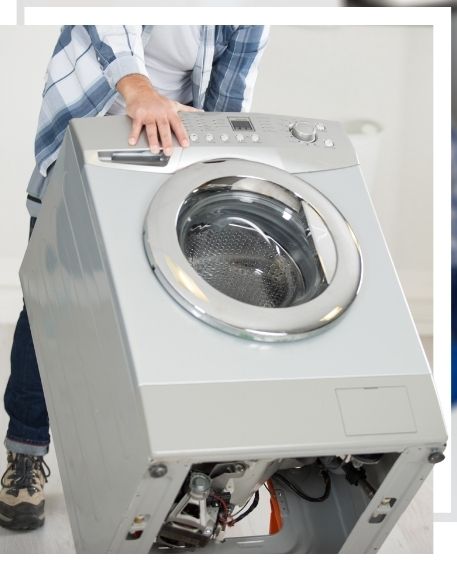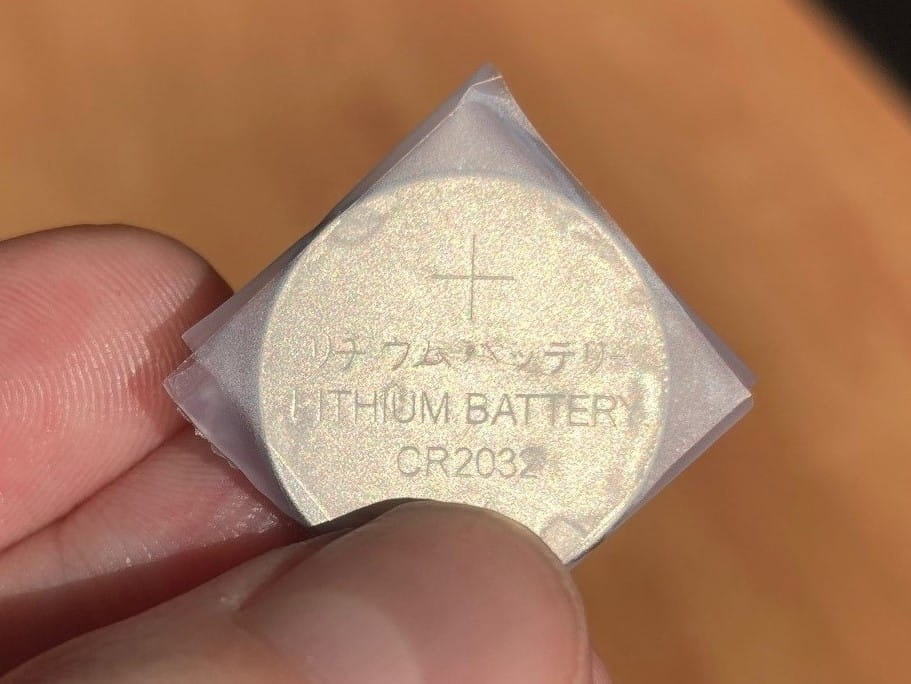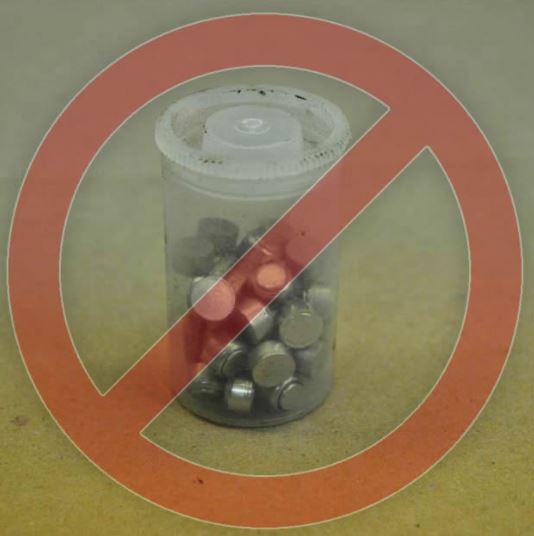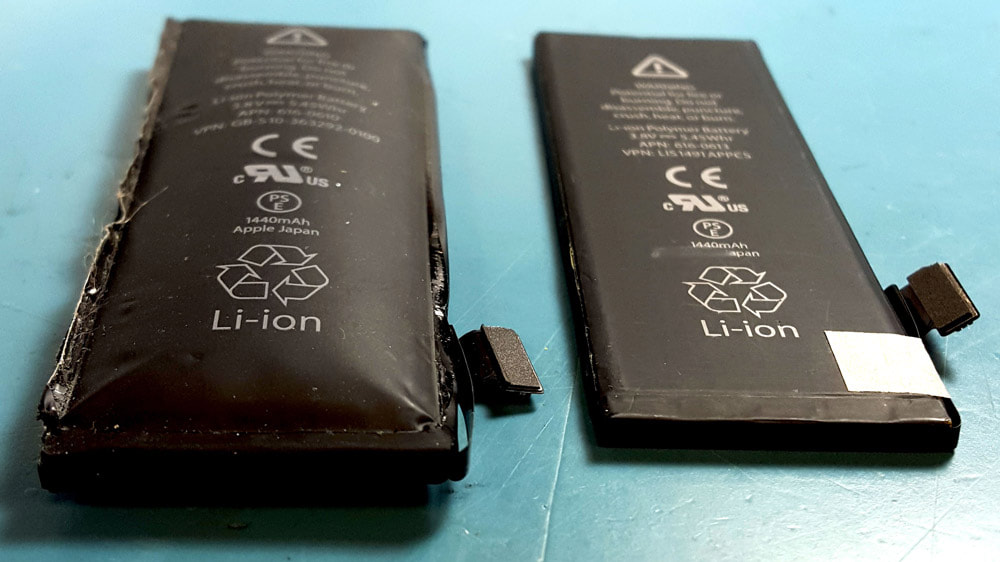How do I dispose of Latex Paint?
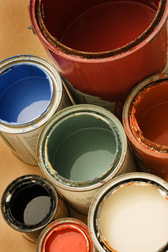
Latex paint is water based and therefore, non-toxic. Although, we want to limit the amount of items we send to the landfill, in this case it is safe to dispose of the latex paint in this manner. But, there are certain steps that need to be taken:
1. See if there is a REUSE purpose for your leftover paint either in your own home or at a local non-profit organization. If not, proceed with the following steps.
2. Take the lid off and fully dry out the left over paint. To speed up the process, you can add kitty litter, saw dust or another drying agent directly inside the can. If you have a large amount of latex paint, line a box with a garbage bag, spread kitty litter & wadded up newspaper inside the bag, pour the leftover paint over the materials. Leave until it is fully dried out.
3. Once the paint is in a completely solid state, double bag the can(s) and dispose of them in your residential trash. These preventative measures eliminate spills on our roadways and prevent damage to their hauling equipment.
* Oil based paints, stain and thinners are considered hazardous waste and can be disposed of at the District's Tox Drop collection events.
1. See if there is a REUSE purpose for your leftover paint either in your own home or at a local non-profit organization. If not, proceed with the following steps.
2. Take the lid off and fully dry out the left over paint. To speed up the process, you can add kitty litter, saw dust or another drying agent directly inside the can. If you have a large amount of latex paint, line a box with a garbage bag, spread kitty litter & wadded up newspaper inside the bag, pour the leftover paint over the materials. Leave until it is fully dried out.
3. Once the paint is in a completely solid state, double bag the can(s) and dispose of them in your residential trash. These preventative measures eliminate spills on our roadways and prevent damage to their hauling equipment.
* Oil based paints, stain and thinners are considered hazardous waste and can be disposed of at the District's Tox Drop collection events.
How can I recycle/dispose of my electronics?
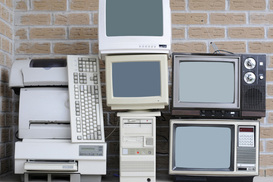
As of January 1, 2011 an Indiana state law prohibits electronics (i.e. computers, monitors, computer accessories, televisions, DVD players, VCRs, DVRs, printers, scanners, fax machines, copiers, digital photo frames, media players, mp3 players, cameras, navigation systems & game consoles) from being disposed of in a landfill or incinerated. Therefore, we need to find an appropriate way to recycle these items. Although ever changing, there are currently multiple local ways to recycle your electronics:
1. Two times a year the District hosts an electronic collection event in conjunction with their Tox Drop collections. All electronics are collected free of charge, with the exception of a fee for televisions. For additional information, please click the link below for District collection information.
1. Two times a year the District hosts an electronic collection event in conjunction with their Tox Drop collections. All electronics are collected free of charge, with the exception of a fee for televisions. For additional information, please click the link below for District collection information.
2. Goodwill of Central Indiana accepts all electronics with the exception of televisions. If the electronic is in working order, they will process and attempt to resell it. If the unit is in non-working order, please notify the attendant and it will immediately be placed in the recycling pile. Please contact your local store for accepted items and store hours.
3. Best Buy currently accepts electronics for recycling. Please contact your local store for accepted items and store hours. Additional information is also available on their website.
4. W Enterprises in Crawfordsville also accepts electronics for recycling. Please visit their website for additional details, fees do apply.
5. If WM formerly Ray's Trash Service is your current waste hauler, contact them directly for a special pick-up of electronics. Fees do apply.
3. Best Buy currently accepts electronics for recycling. Please contact your local store for accepted items and store hours. Additional information is also available on their website.
4. W Enterprises in Crawfordsville also accepts electronics for recycling. Please visit their website for additional details, fees do apply.
5. If WM formerly Ray's Trash Service is your current waste hauler, contact them directly for a special pick-up of electronics. Fees do apply.
How can I sign up for curbside recycling?
|
Click on link to our recycling page for current options.
|
Where do I go to dispose of heavy trash items such as mattresses, appliances, etc.?
|
A few municipalities in Boone County host heavy trash collection either as a drop off event or as curbside pickup. Please check with your local City or Town about upcoming events. If such an opportunity is not conducive to your disposal needs, a resident can utilize a local transfer station located in Boone County:
Boone County Resource Recovery* - 985 US 421, Zionsville - 317-769-4223 *this facility can accept Freon containing appliances Please call ahead for hours, fees and to ensure the facility can accept your residential item. |
Which batteries should I recycle?
|
Single use alkaline batteries such as AA, AAA, 9V, C and D batteries are not accepted for recycling and should be disposed of in your residential trash. But, 9V, C and D batteries should have their positive or raised terminal covered in heavy duty packing, duct or electrical tape before disposing of them in your residential trash. This should eliminate the concern of the batteries coming in contact with one another or another object that could enable the battery to increase in temperature and cause a dangerous condition.
Rechargeable or special chemistry batteries such as Lithium Ion/ Button Batteries (Li-Ion), Nickel Cadmium (Ni-Cd), Nickel Metal Hydride (Ni-MH), Nickel Zinc (Ni-Zn) and Small Sealed Lead Acid (SSLA/Pb) under 11 lbs. can be recycled at the District office, Great Lakes Ace Hardware and Lowes. All battery chemistries should be clearly labeled on each individual battery. If the rechargeable battery is self contained such as one that is used in a drill or power tool, no preparation is needed prior to recycling. If you plan to recycle loose rechargeable batteries from the list above, please cover the positive or raised terminal with heavy duty packing, duct or electrical tape. Do your best to not cover the name brand or chemistry of the battery. If you are recycling several hearing aid batteries or other button batteries, you may take a long strip of heavy duty clear packing, place batteries INDIVIDUALLY on tape strip and then place a second strip on the top side of the batteries ensuring the batteries stay separated. We have found this to be a fast and efficient way to prepare the batteries and still shows the chemistry on the backside of the batteries. Large, in excess of 11 lbs., lead acid batteries as used in vehicles and boats may be recycled at one of the several locations listed on our recycling page or they may be brought to our tox drop collection events. At any time you come across a battery that is damaged or swollen, please place in kitty litter or sand and contact the emergency authorities. A swollen battery is a very volatile situation and should be treated very seriously. A swollen battery can happen even if it is contained within a computer or phone. |
I am moving, what do I do with my household hazardous waste?
|
When thinking about moving, the best thing to do is plan ahead!
Collect your household hazardous waste (i.e. cleaners, pool chemicals, weed killers, pesticides, etc.). Determine the materials that have been stored correctly and are able to be reused. Consider passing these materials on to a neighbor, friend or family for use. The materials that remain, need to be brought to one of the District's biannual Tox Drop collection events. If the timing of your move does not coincide with our collection events, try asking a neighbor, family or friend to bring your material when they bring their waste to the event. Lastly, if none of these options work, please call the District office at 765-483-0687 and we can put you in contact with our hazardous waste contractor. Please note there will be fees with this option where the tox drop is free of charge for household hazardous waste. |
